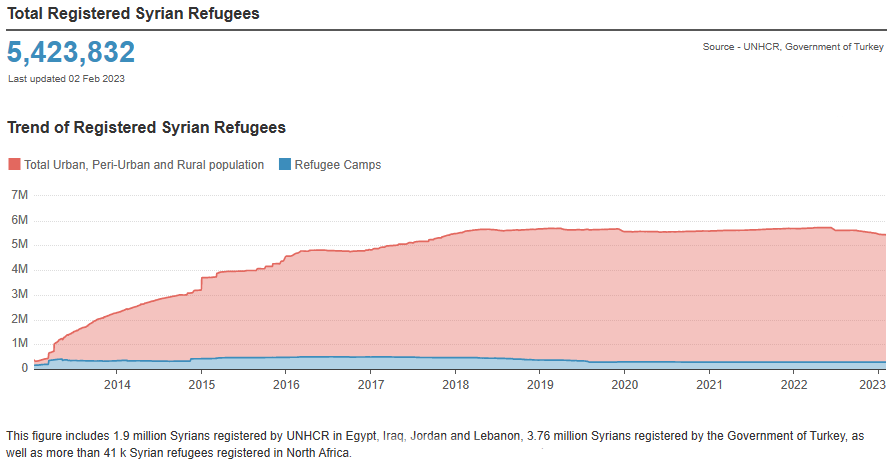Syrian Refugees: Amidst a Natural Disaster in Syria and Turkey
Syrian refugees once again face upheaval following two deadly earthquakes on February 6, 2023, in Syria and Turkey. Measuring 7.7 and 7.8 on the Richter scale, the natural disaster has left more than 50,000 people dead and over 300,000 already displaced; hundreds of thousands more, yet, face possible homelessness. Refugees are particularly vulnerable since many were already facing uncertain living citations, including some residing in temporary camps. Now, countless are left rummaging through the rubble once more and facing another uncertain future.
In the northern part of Syria, 12 years of civil war between the government and various small militias and terror groups have left millions vulnerable to displacement. Turkey hosts the largest number of Syrian refugees at nearly 4 million people. Since 2011, the number of Syrian refugees has been steadily increasing, as the conflict shows no signs of a ceasefire.
To make matters worse, after many refugees fled to Istanbul (the nearest major city for those in some of the hardest-hit provinces, including the city of Antakya) to seek out family members and shelter, the Turkish government issued a directive stating that Syrian refugees have only 60-90 days to remain in nearby cities before they must return to their towns. For many, this is an untenable position, as hundreds of thousands of buildings have been completely destroyed.
“In Antakya, nothing here. Nothing. We don’t see any people. We don’t know what happened. We don’t know the news. We don’t know where we have to go.”
Additionally, harassment and threats against Syrian refugees are on the rise as many Turkish citizens blame them for the earthquake and the resulting looting and property destruction. The campaign of racist rhetoric has been pushed by far-right politician Umit Ozdag, who has a history of standing against refugee resettlement in Turkey.
As search and rescue efforts continue, it remains to be seen how the Turkish government and the rest of the world will respond to the ongoing crisis.
To learn how you can help those affected by the earthquake, visit How to help after the Syria-Turkey earthquake | International Rescue Committee (IRC).



